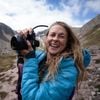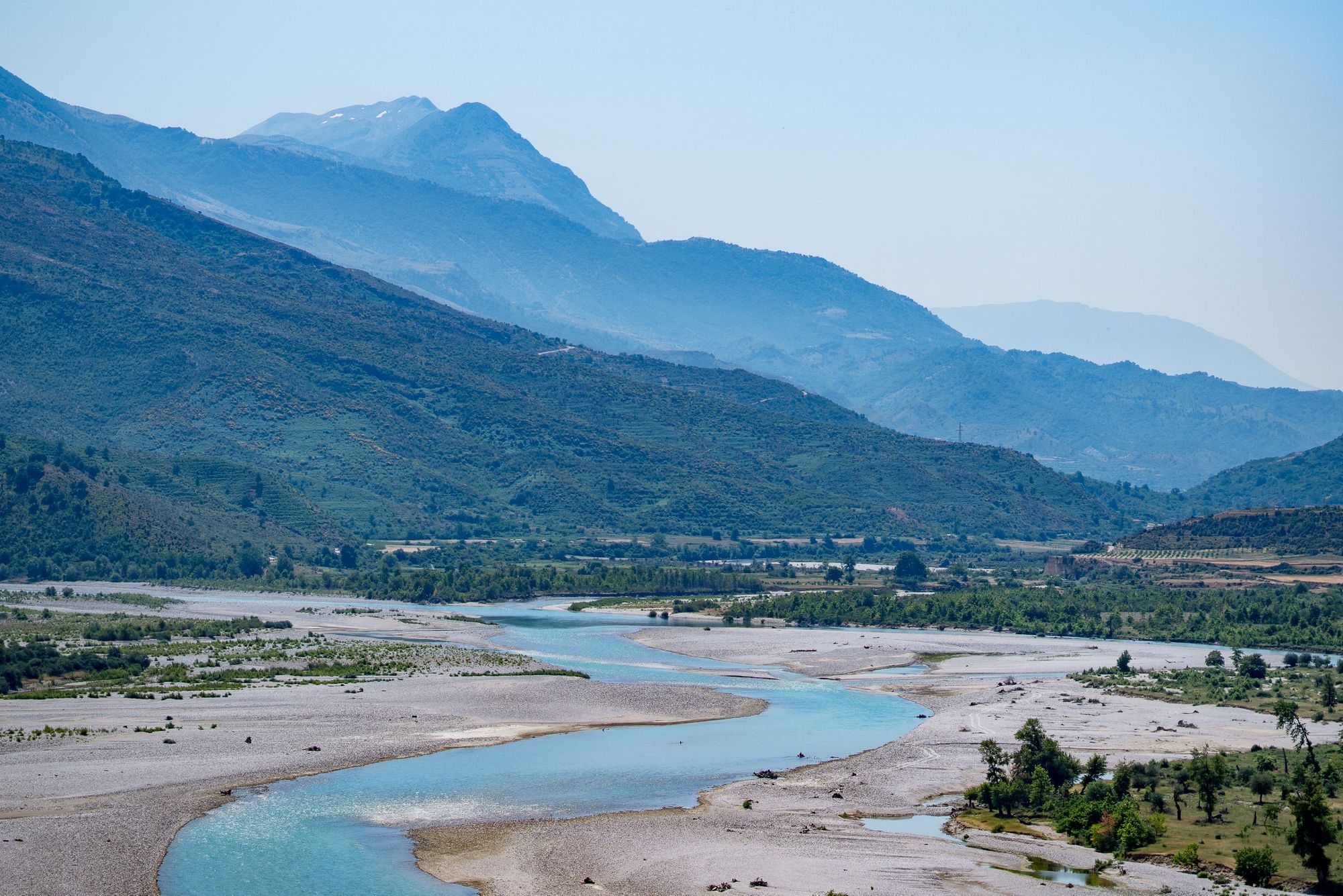“All dams are dirty”, is the stark but simple takeaway from Patagonia’s Blue Heart, the film which brought the fight for Europe’s last wild river, the Vjosa, into the public eye in 2019.
Wild rivers all around Europe are fighting the constant threat of development, and a lot of that comes from hydro schemes. For the most part, the damage has already been done. No matter the debate on the cleanliness of the power, the destruction these schemes cause is clear. Just look at the access roads that are needed to build the schemes, or the trees cleared to make way for the concrete.
As we hit the road back north, once again following the twists and turns of the river, I felt personally and emotionally connected to the Vjosa...
Hydro messes with the flow of the river and cuts the delicate, balanced ecosystem that the river once nourished. On our doorstep in the UK, we have communities and organisations like Save Our Rivers, who have been working hard to educate us whilst fighting to save free flowing rivers. They succeeded for the Conwy in north Wales, helped out to try and save the Etive in the Scottish Highlands, supported the heart of Kendal - and joined the fight for the Vjosa.
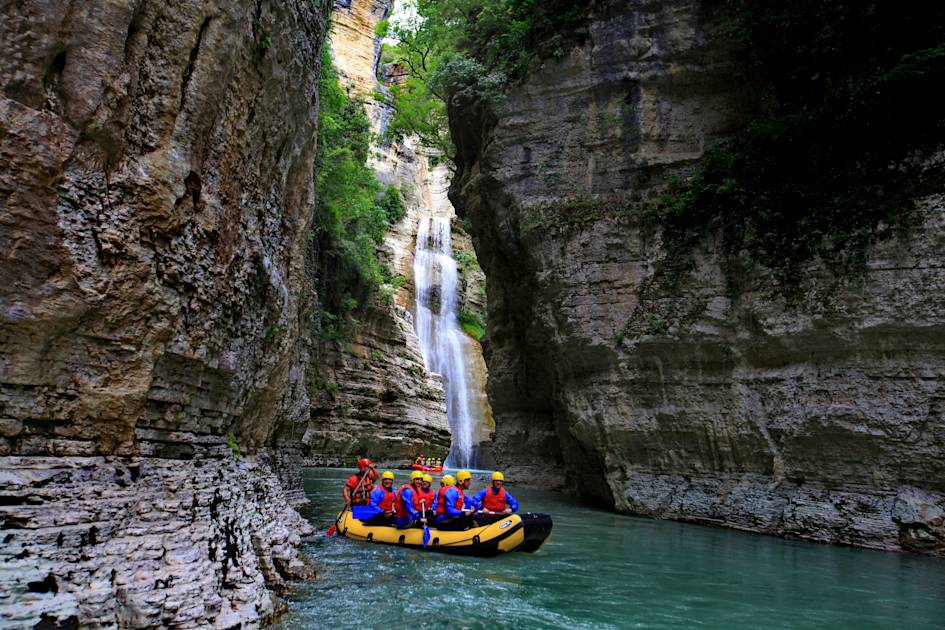
As a recent trip to Albania reminded me, the Vjosa, and all rivers, belong to everyone, and therefore they are everyones to protect. On June 13th, the week after I visited, the Albanian government signed a commitment to collaborate with Patagonia on the establishment of the Vjosa Wild River National Park. It is a huge step forward for the NGOs and local communities I met while I was there.
I have been following the Save the Blue Heart campaign since 2018. It was launched by a coalition of NGOs including EcoAlbania, RiverWatch and Euro Natur. Their aim is to raise awareness of the need to protect the Vjosa - a relatively unknown fight up until they caught the media and public’s eye in the past five years. As one of Europe’s last free flowing rivers, running 270km relatively untouched by human development, the Vjosa has been at the centre of a constant fight for prevention and protection.
It's not just the Vjosa that continues to be threatened, either. At one point I came across a map the coalition had compiled showing more than 3,000 proposed hydro schemes across the Balkans. It was frightening. This is the map that caught the attention of Patagonia, who got behind the campaign and have since made two films - Blue Heart (2019) and Vjosa Forever (2021).
It has gone on to be a decade long fight for campaigners but one which has now reached, if not a happy ending, a happy update and a new chapter in the story.
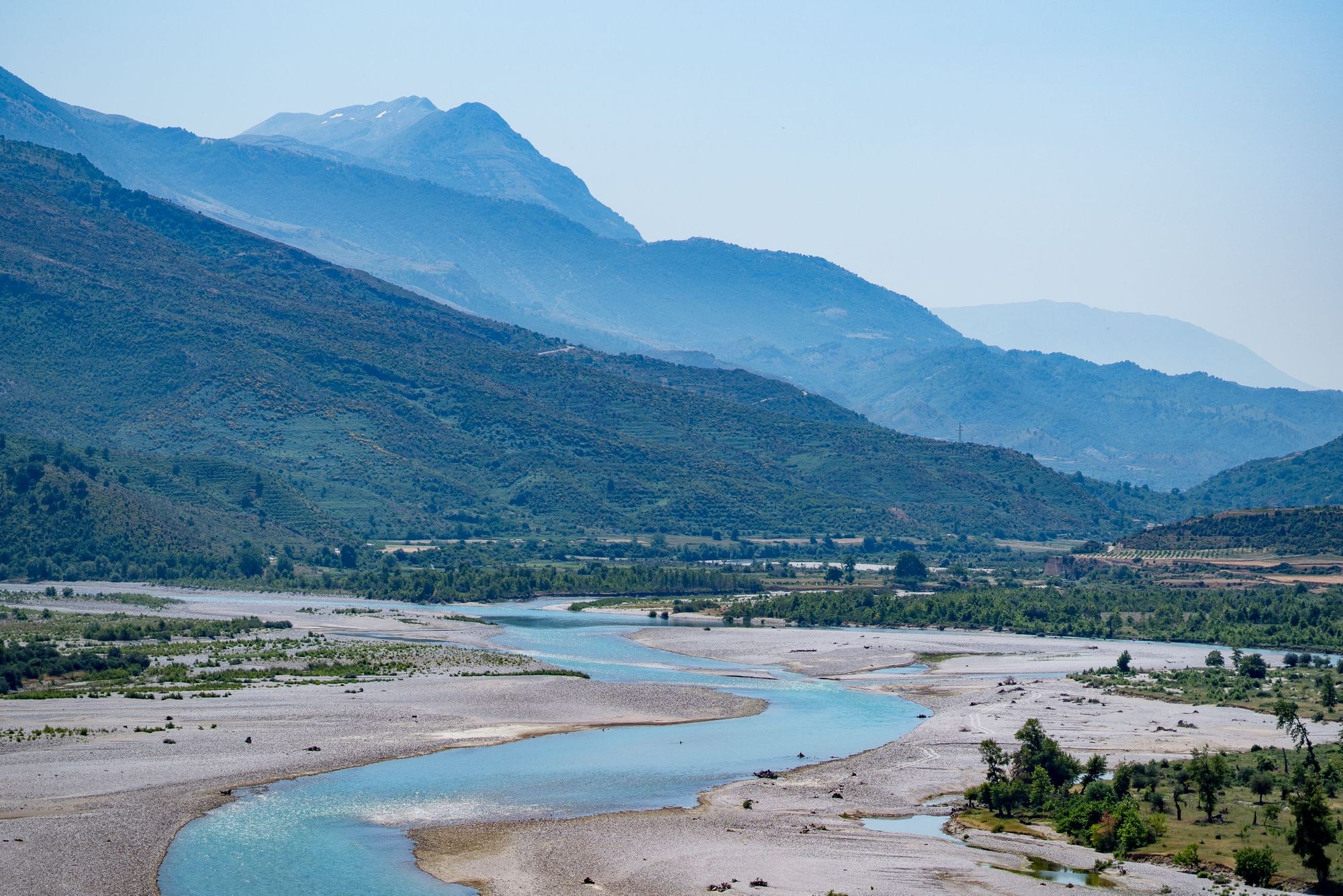
At the start of June, I traveled to Tirana, the capital of Albania, with a film crew to work on a documentary for I.D and capture the beauty of the river - and portraits of the people who rely on it. We hit the road immediately to head south for a couple of hundred miles, weaving our way down to Tepelene, a town in southern Albania, sitting in a scenic green valley divided by the Vjosa.
It was a Saturday afternoon and our aim was to get there by 6pm to see the start of the Vjosa Forever concert. EcoAlbania had brought together some of the most recognised voices in Albanian music for an event in the square overlooking the river. In fact, they were singing out to the river. We may not have known many of the artists, but we seemed to be the only ones not in the know.
The energy of the crowd, chanting “Vjosa, Vjosa” drew us in, as did the river around us. It was as magical as it was clear how much these people cared.
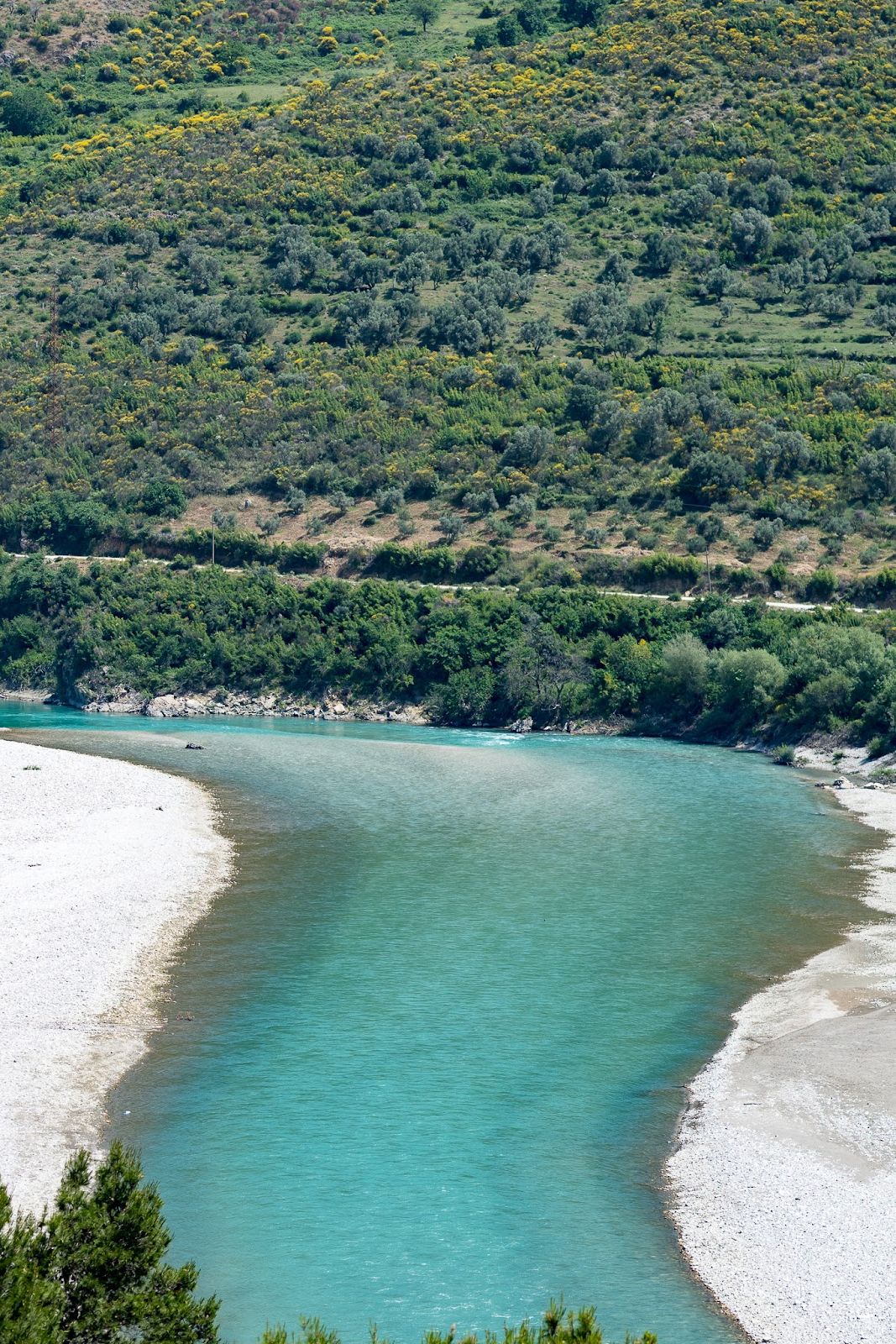
After a day in Tepelene, and a night at a classic AutoGrill hotel, we continued to explore the Vjosa and follow in its path. Photographer Nick St Oegger was to be our guide for the day.
Originally from California, Nick has been exploring the Balkans, Albania, and the Vjosa since 2013. He was driven by a feeling that there was more to see and show of the country than the stereotypical images of war and post-communism struggle.
Nick told us his story as we roamed the banks of the Vjosa on a hot afternoon, running for the shade of a cafe and some lemon sodas when it got too much. His inclination on Albania was right - there was so much for him to see, and his camera was a great tool to share the positive content the country deserved to be recognised by. That included shots of the Vjosa.
As soon as St Oegger saw the river for the first time, from that viewpoint in Tepelene, he was drawn in to support the campaign to protect it. His photo projects, including “Portraits of Life on Europe’s Last Wild River”, shed light on the people and place in a way that helps tell their stories in a natural yet impactful manner. We were lucky to have his experience and knowledge (plus Albanian language skills) to show us around Tepelene before we met up with EcoAlbania and RiverWatch to travel a little further down the river.
Ulrich Eichelmann is the founder and CEO of RiverWatch. He has worked tirelessly over his career to fight for the protection of nature as a conservationist, primarily focused on river conservation and restoration. We met him the day after the concert, down by the river, before it was time to raft and swim in the Vjosa itself. He has been a vital part of the Save The Blue Heart Coalition and makes it clear that the success of the fight is based on visibility.
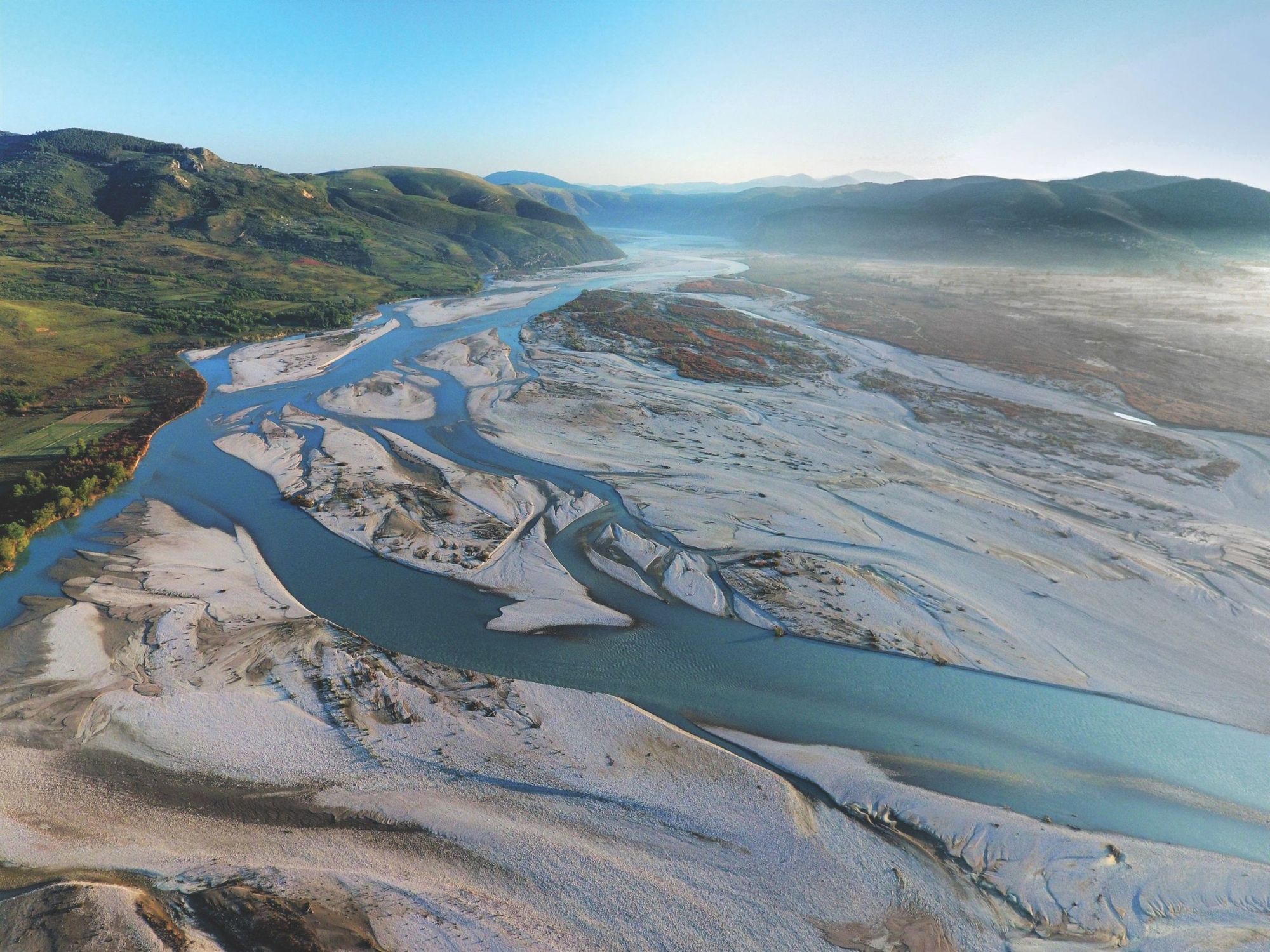
Eichelmann has helped take the campaign to an international level, and made it a focal point for the environmental movement worldwide. On 13 June he stood next to the Albanian prime minister, and alongside other coalition members, for the signing of the commitment to establish a Vjosa Wild River National Park.
Even though it is a huge success, activists know that there remains a lot of work to do in order to create the systems and infrastructures to make the Vjosa a protected park, and ensure its future. But, for now, it is in the right hands.
The next day, we headed further south to meet locals who live off the river.
Dona believes the Vjosa is everyone’s, as are the Dhëmbel and Nemërçkë mountains which surround them. The National Park status will protect the river, they believe, but also bring more people to the area.
We wanted to get their thoughts first hand about what it would mean for the river to become Europe's first Wild River National Park - and why development which prevents the river from flowing freely is not welcome.
We had already experienced that outside of Tirana, and further south, there were not so many tourists and a traditional way of life was still in place. You could still spot shepherds with flocks, donkeys for transport and rod fishing on the river.
Through the small city of Permet, the Vjosa runs free. It is considered the greenest and cleanest city. Buildings, hotels and cafes are built in amongst the banks and the trees, but don't get in the way of nature. We traveled out of town 3kms, and into the countryside to meet with Dona and Robert of Albturist.
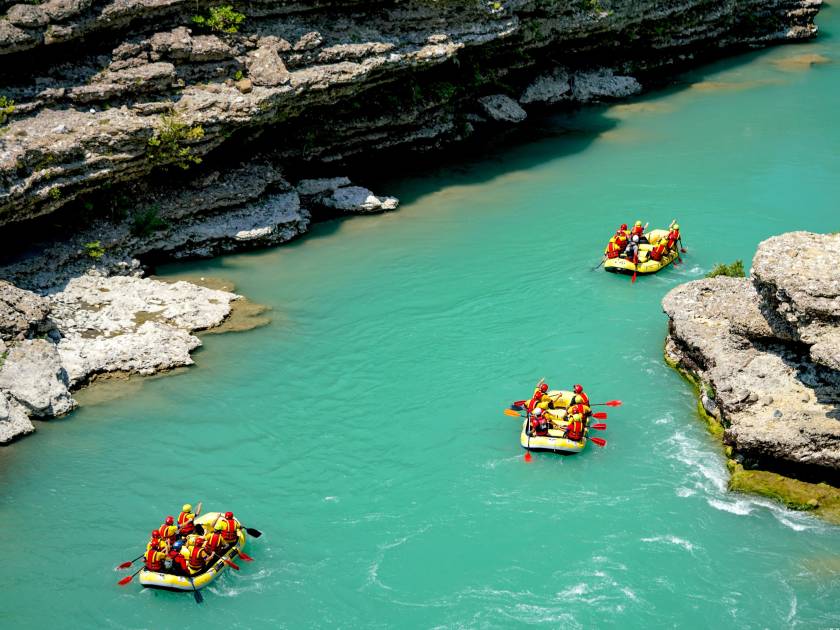
They run a campsite and adventures (rafting and hiking) right by the river, together with their daughter.
Robert has spent his life in the area, and has been part of protest campaigns against dam construction, including the Langarica Tributary River Hydropower Dam site, which unfortunately was constructed in 2014. He is proud of the river and what it stands for, but knows of the need to keep the government accountable for its protection. Robert lives off the river and passed his connection on to his daughter, who paddles alongside him.
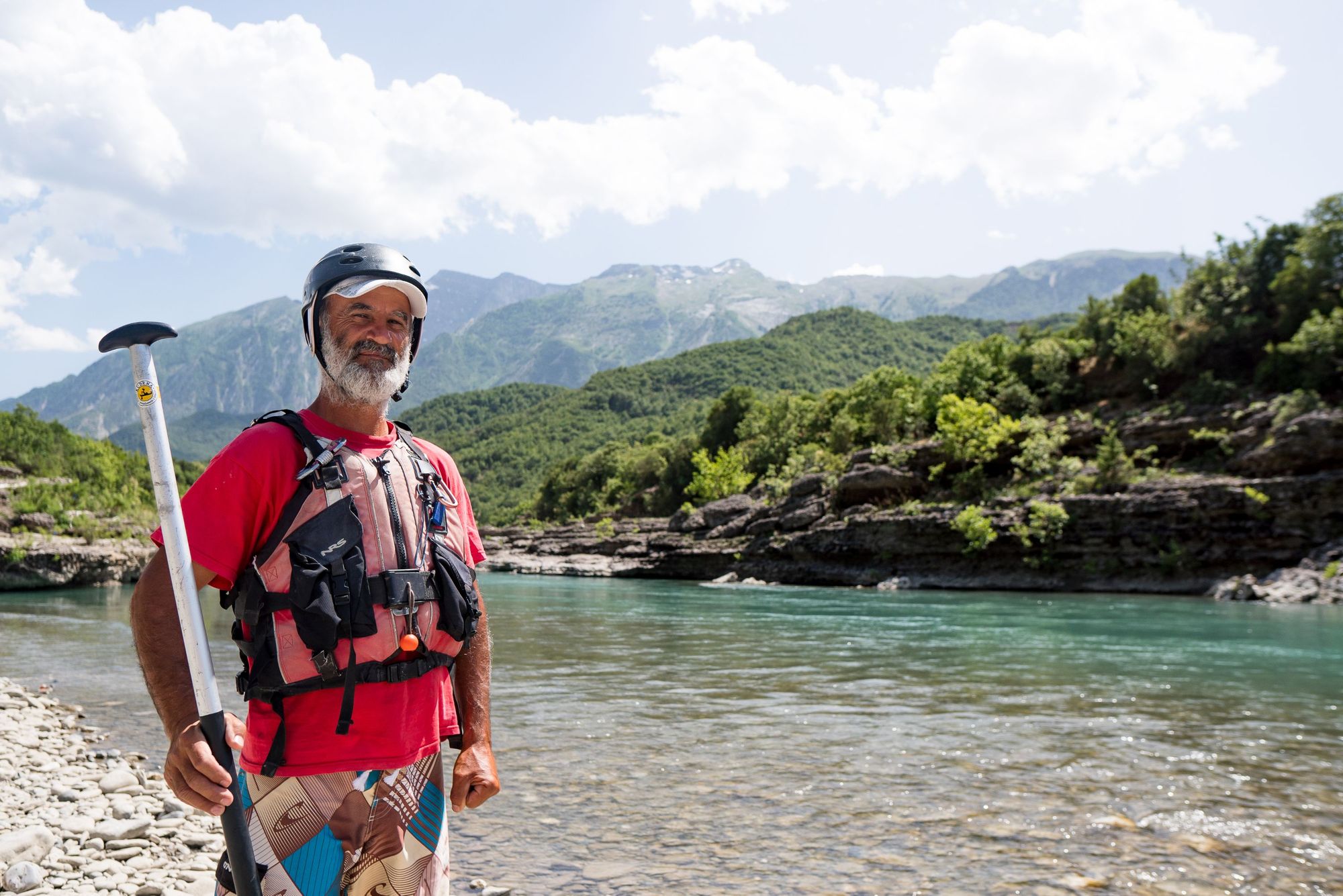
Dona keeps busy back at the campsite, welcoming tourists, mostly campervan travellers onto their land, alongside her pet goat, Carlos. It is an incredibly welcoming and friendly place to arrive, and we gained a huge understanding of the kindness of the local people - especially when trying to pay for our drinks.
Dona believes the Vjosa is everyone’s, as are the Dhëmbel and Nemërçkë mountains which surround them. The National Park status will protect the river, they believe, but also bring more people to the area. Although they currently get enough business, Dona says, it will be a great thing for more people to live in, play in and protect the wild side of Albania.
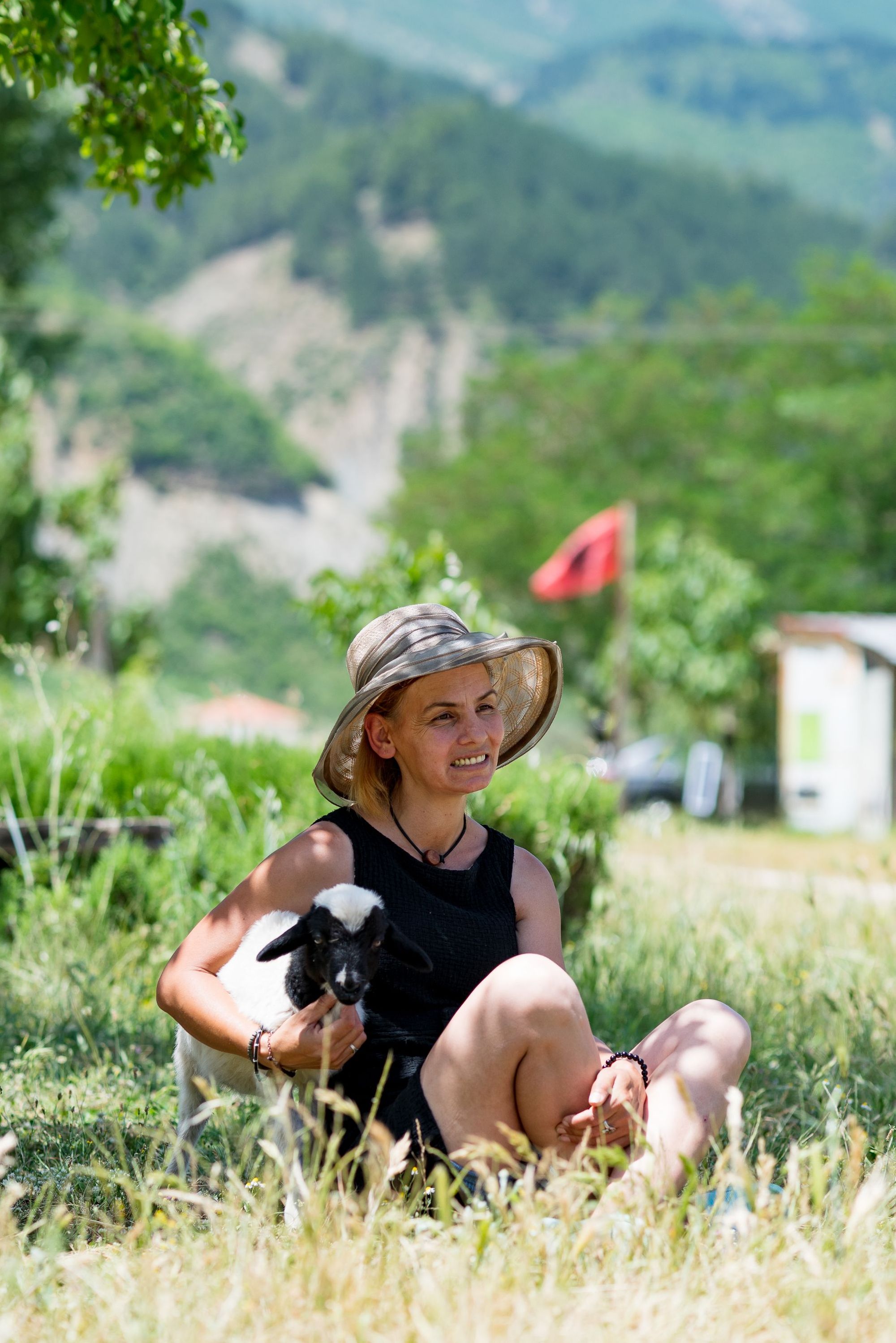
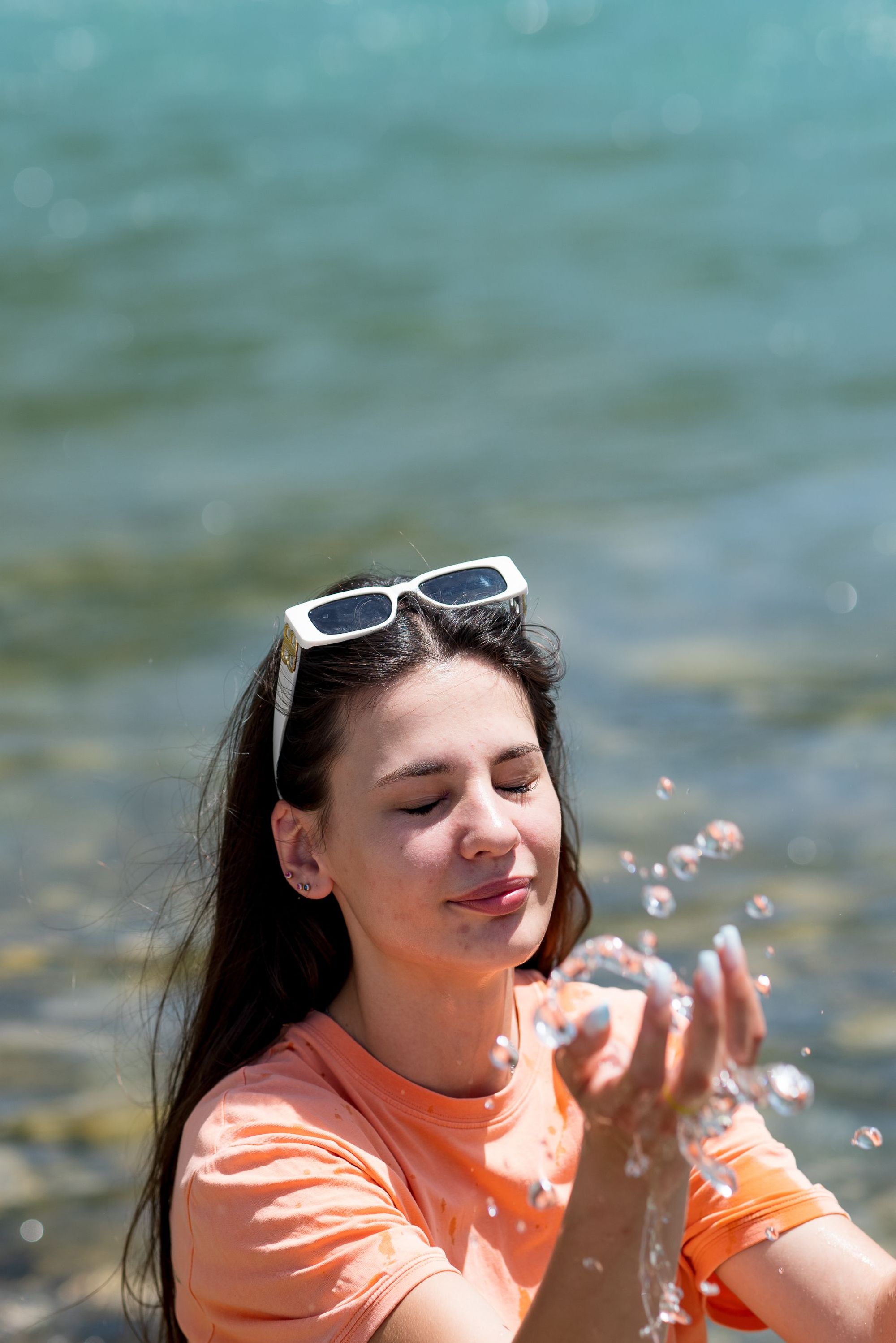
As we hit the road back north, once again following the twists and turns of the river, I felt personally and emotionally connected to the Vjosa. We met so many passionate, kind and considerate people; people that give you faith in humanity.
The news is filled with many disasters, fights and missed environmental targets by governments and the higher powers. But the people on the ground; locals of Permet, activists of Albania, NGO’s of Europe, prove that with the power of the people, change is possible. In this case it has been.
The fight for the Blue Heart of Europe will continue, but it is now on a path to becoming Europe’s first Wild River National Park - something worth celebrating.
If you decide to travel to Albania, and follow the run of the river, which starts in Northern Greece and ends in the Adriatic sea, take the time to be a conscious traveller. Support local businesses, educate yourself on the National Park, take pictures as you go to show the beauty of Albania, and follow the coalitions which are working tirelessly to protect the place you have come to play.
Inspired? Join our trip, and raft, kayak and hike the Vjosa River!

